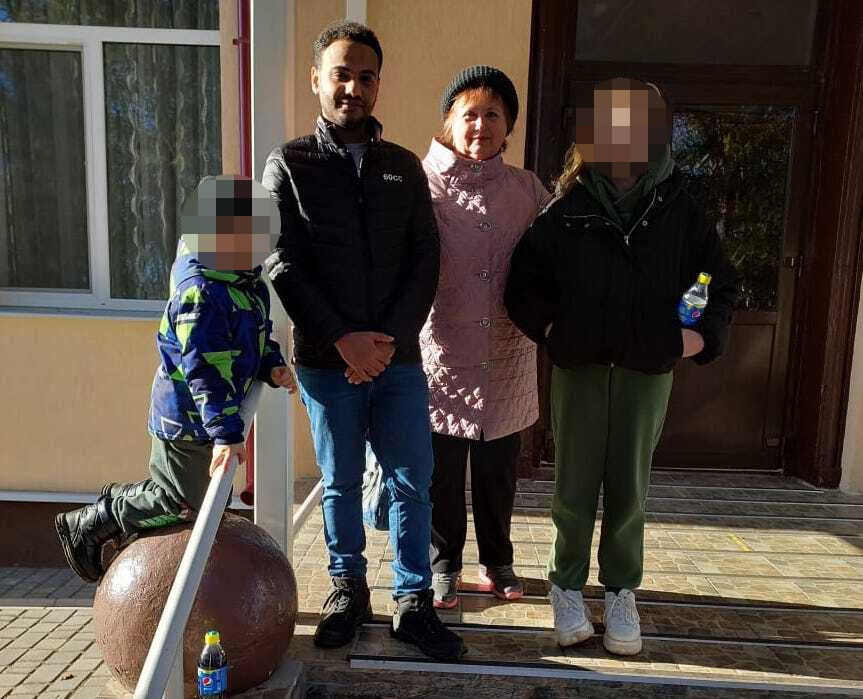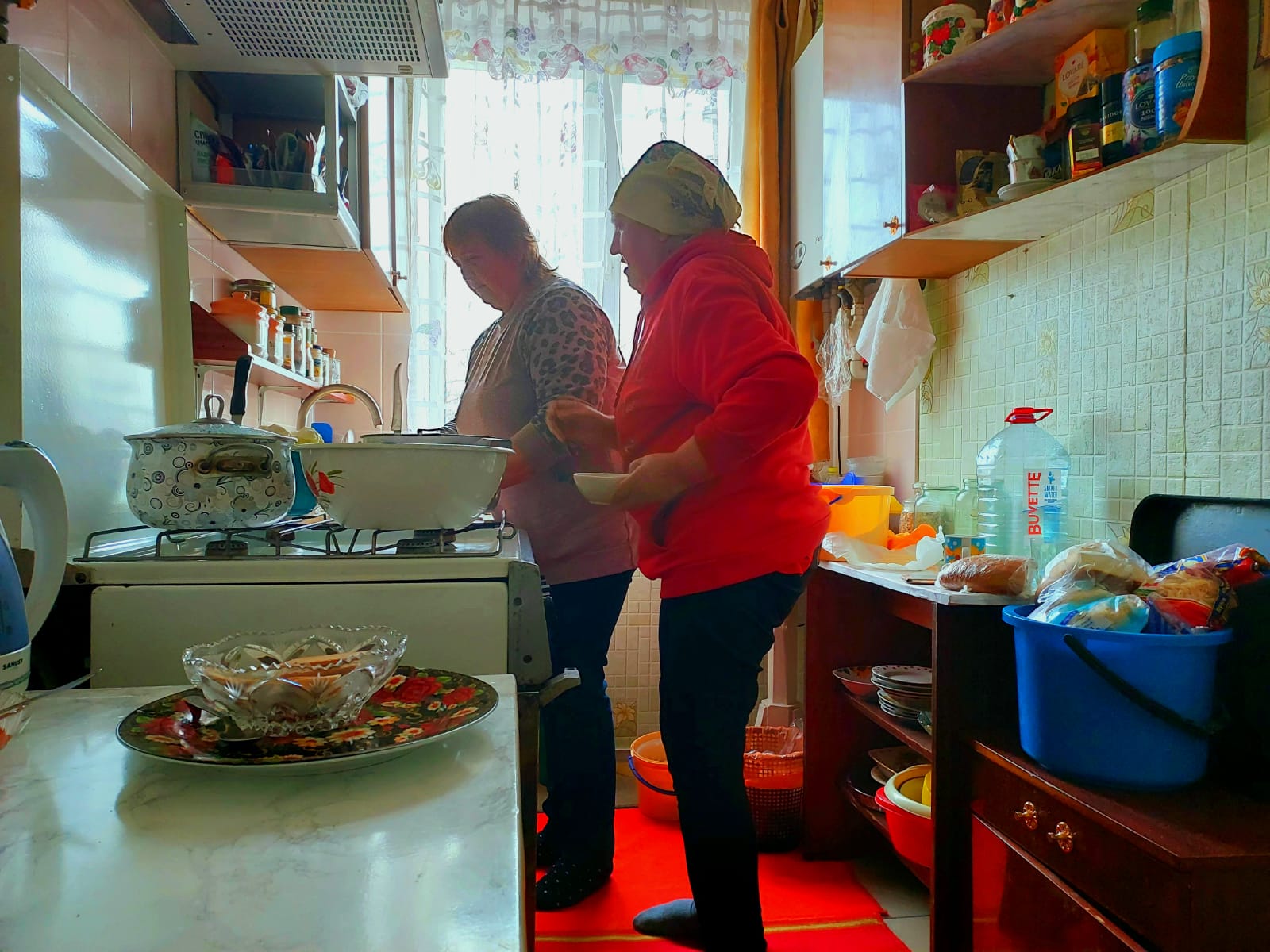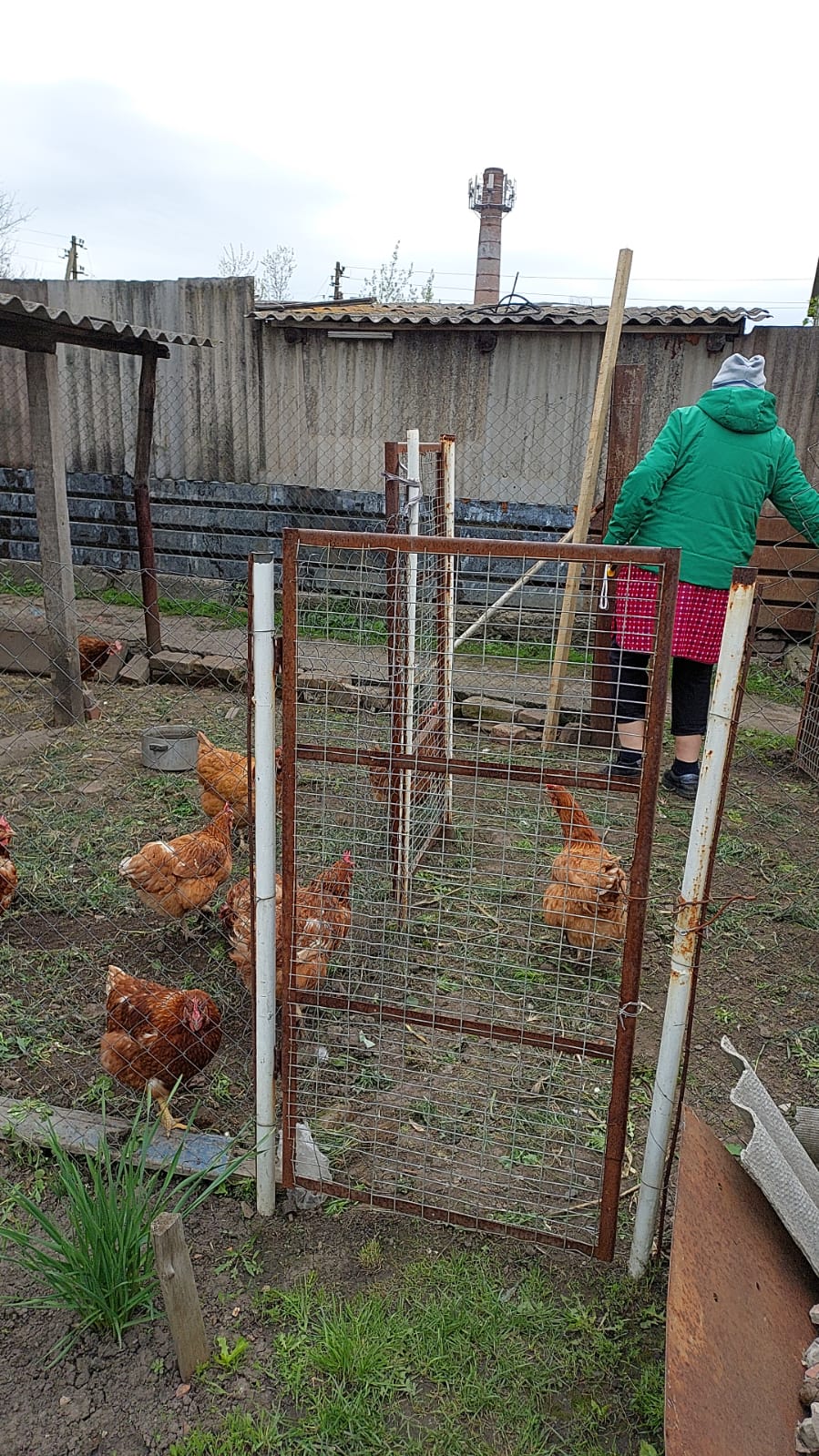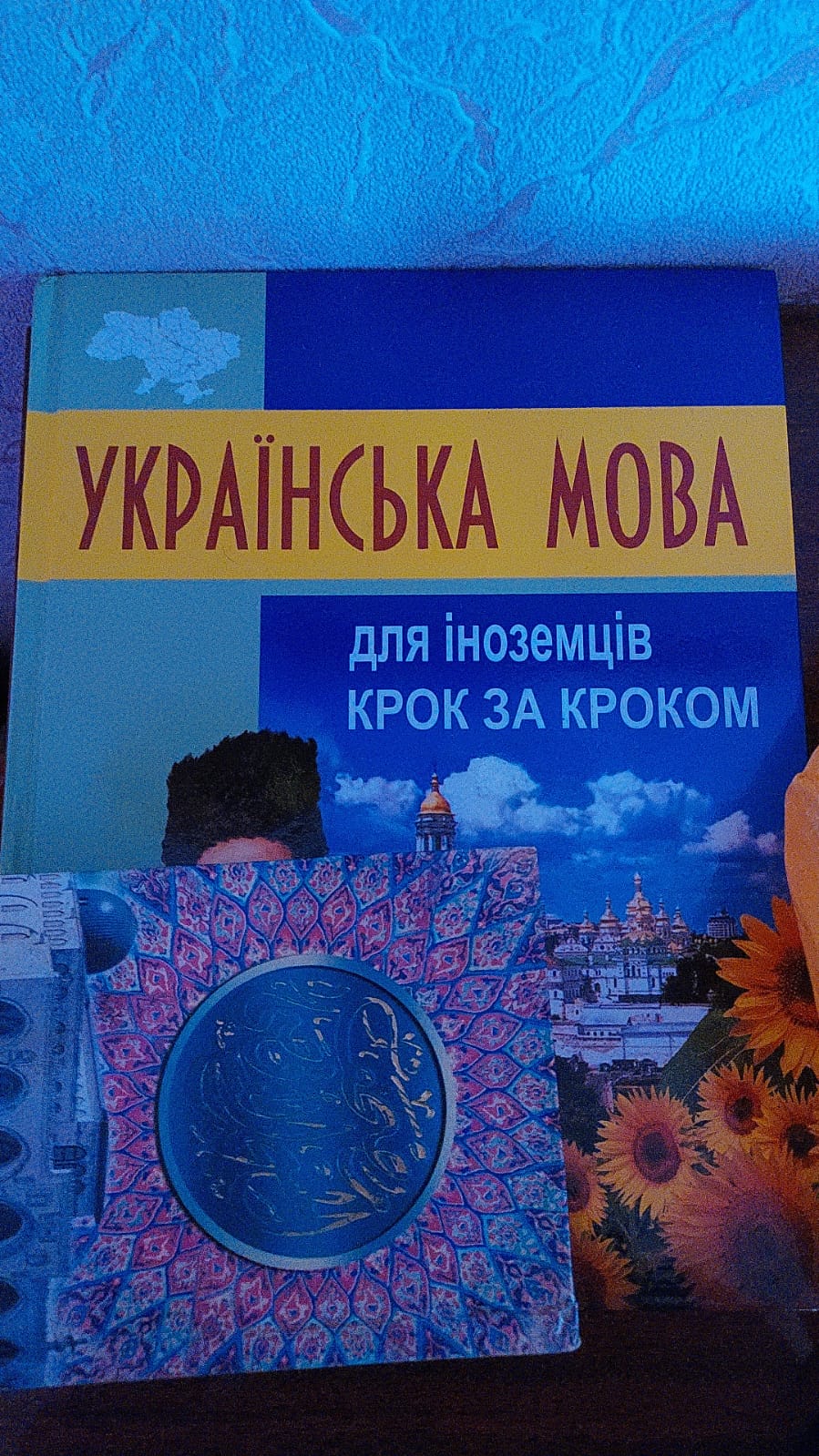‘Everyone here is kind and respectful’: The Ukrainian family sheltering a Yemeni student
Khalid Bin Jaah fled Yemen because of war – now he is staying with a Ukrainian family as Russian troops advance, reports Charlene Rodrigues


Koshmanivka village in the Poltava region, roughly 150km (93 miles) southwest of Kharkiv, is a far cry from the seaport city of Mukalla in eastern Yemen’s Hadhramout.
It is the village where Yemeni aviation engineering student Khalid Bin Jaah, 29, is sheltering with a Ukrainian family after fleeing Russia’s bombings in central Kharkiv – a city which he loved and made his second home – after escaping Yemen’s brutal war in 2015.
In March, The Independent wrote about his harrowing experience living under Russian bombs in central Kharkiv.
After a week of alternating between underground bomb shelters and his apartment, Mr Bin Jaah knew he was dodging bullets. Leaving Ukraine was still not an option, unlike hundreds of young students and Yemeni professionals who were in the country at the time of the invasion. They fled to neighbouring countries across Europe – chiefly Poland and Germany.

Mr Bin Jaah was in the midst of renewing his Yemeni passport and his Ukrainian temporary residence was due to end in three months. Without the right documentation, he feared, seeking shelter elsewhere in Europe would be challenging.
Days before the Russian invasion, Mr Bin Jaah met a Ukrainian lady, Halyna Kovalenko, who had come to the immigration centre in Sumy to collect her Ukrainian passport. After learning about his immigration situation they exchanged details. When the war started on 24 February she told him to visit her mother in Koshmanivka village if he needed to find somewhere safe.

“She said her mother wouldn’t mind and would be happy if I went to her,” Mr Bin Jaah says. He was obstinate at first and refused to go thinking the situation would improve.
The morning after his building was targeted on day eight of the invasion, he woke up to a dozen missed calls from Ms Kovalenko and her mother urging Mr Bin Jaah to leave his flat in Kharkiv. By then finding transport was difficult. With millions of Ukrainians trying to escape he believed his chances of leaving were slim.

A friend found him a taxi for £80, but Mr Bin Jaah couldn’t afford it. Several hours passed before he could find a train to the village for £2. Some transport services were disrupted. The train was heaving, but the guards granted him entry.
“I was standing during the journey for two hours,” he says. When his train pulled into the station near Koshmanivka village, Ms Kovalenko’s mother picked him up and took him home where he has been staying since.
These days, he says, he wakes up to the birds singing and sprawling green fields. He fills his time with long walks, gardening, feeding the chickens, visiting neighbours, playing football with toddlers and learning the Ukrainian language. The sound of air raids though isn’t far away.
Everyone speaks the Ukrainian language, no one speaks Russian
“I speak with them in Russian, and now they teach me the Ukrainian language here in the village. Everyone speaks the Ukrainian language, no one speaks Russian,” he tells The Independent.
Mr Bin Jaah recognises his experience was far from usual where other foreign students have faced discrimination and racism while trying to escape.
When he fell ill, the family bought him medicines and nursed him back to health, for which he says, he is eternally grateful. Mr Bin Jaah hasn’t seen his Yemeni family for more than seven years now.
“They [the Ukrainian family] consider me like their family,” he says.
The hosts have offered him a separate room where he can work, pray and study. And during Ramadan they have abstained from cooking during the day or eating in front of him. The family eat with Khalid in the evening during Iftar.

“Everyone here is kind and respectful,” Mr Bin Jaah says, adding “I’m Muslim so they don’t cook pork or drink alcohol in front of me.”
Ms Kovalenko travelled to Poland with her 10-year-old son, where she works and has a temporary residence. Her husband has stayed behind in Ukraine to fight. Mr Bin Jaah’s family renewed his passport in Yemen and sent it to a friend in Saudi Arabia who then posted it to Ms Kovalenko in Warsaw.
“My passport is in Poland. She will send it to me to the village,” he says.
Last weekend, Mr Bin Jaah celebrated Orthodox Easter with the family where they had easter eggs and homemade Ukrainian cake.
On Monday (May 2) the family look forward to celebrating their first Eid with him. Mr Bin Jaah confesses that there is no meat in the village for his favourite dish mandi – a hadhrami traditional earthy slow-cooked meat in spices and rice, cooked in a clay oven.
“We need to buy meat from the city,” he quips, looking for other options.
Join our commenting forum
Join thought-provoking conversations, follow other Independent readers and see their replies
Comments
Bookmark popover
Removed from bookmarks